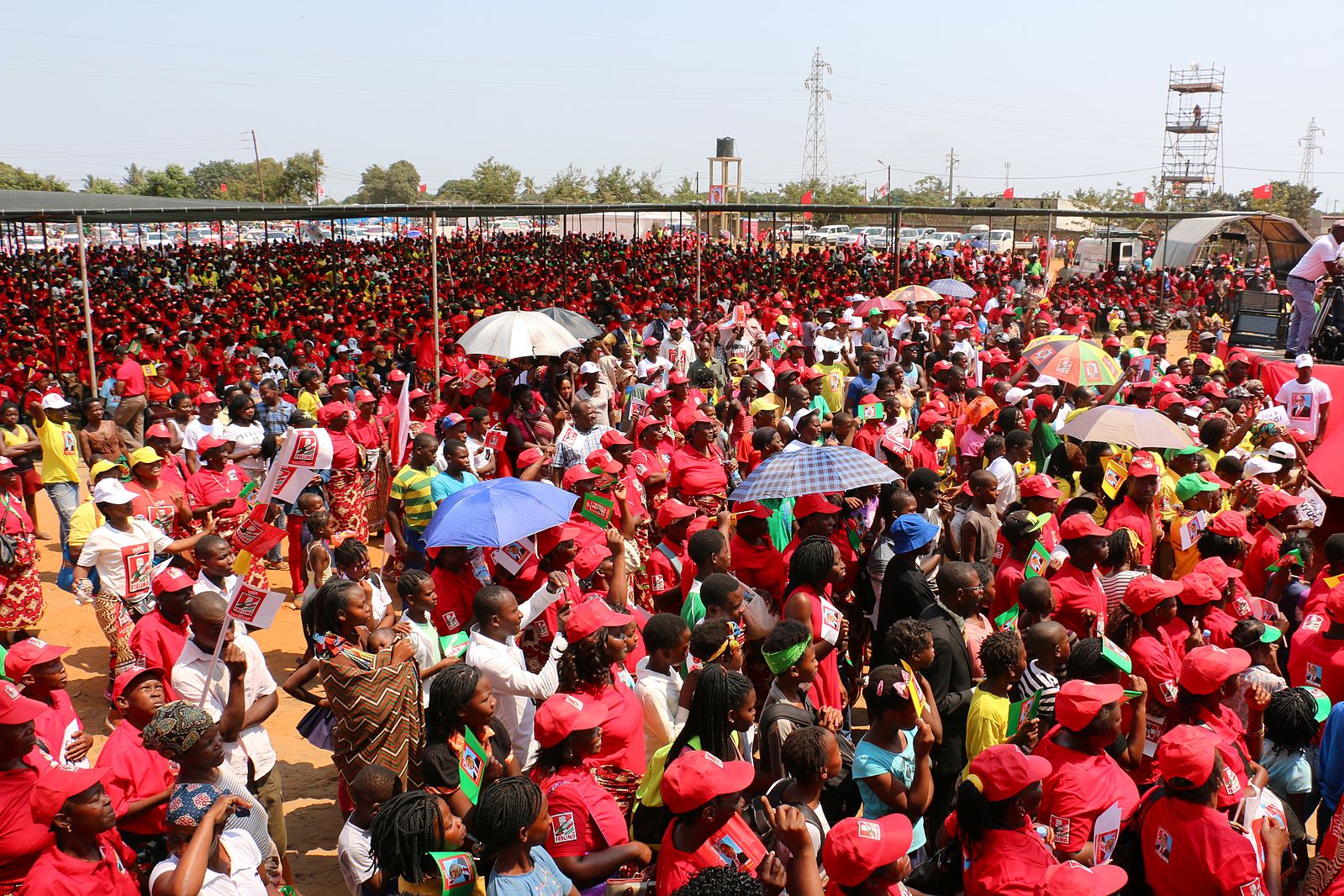News
Outplaying the populists: A playbook for competitive African politics
More than two-thirds of Africans, the Afrobarometer polls show, favour democracy over other forms of government. Tapping into their support and presenting the opposition as an alternative rather than an enemy for the government to mobilise against, has to be the way to go.

Former Research Director, The Brenthurst Foundation

Former Director, The Brenthurst Foundation

In the December 1999 election, Mozambique's ruling Frelimo was in the fight of its political life against the opposition Renamo. Many accounts have it losing, but stealing, that election.
Although President Joaquim Chissano was officially re-elected with 52.3% of the vote, and Frelimo secured 133 of 250 parliamentary seats, opposition MDM MP Lutero Simango believes that things were skewed in the government's favour. “Counting did not take place in Nacala [province]. No one knows those results till today. It is believed that if these votes had been counted that Frelimo would not have won.”
Simango and his brother Daviz, the mayor of Mozambique's second city Beira, are both scions of Frelimo, sons of Uria Simango, a Presbyterian minister who was a founder member of the liberation movement back in 1962.
Uria served as president after the assassination of Eduardo Mondlane in February 1969. That April his leadership was replaced by a triumvirate comprising himself along with Samora Machel and Marcelino dos Santos. Six months later he was expelled from the Central Committee and left the country. He returned from self-exile in Egypt in 1974 to establish the National Coalition Party, where he was joined by other Frelimo dissidents. Arrested in May 1975, he and his wife were later executed, though the exact date and place has never been disclosed by Frelimo.
“Since independence until now,” reflects Lutero, “we have had a type of party-state dominance in the form of Frelimo. The first constitution was a one-party version in which Frelimo was the guardian of the state. All those who wanted to be civil servants had to hold a Frelimo membership card. If you wanted to be an officer in the army or police, you had to be a very good communist. Things were controlled from top to bottom of the state structure.”
He says that things are still heavily weighted against the opposition. “When Mozambique began its multiparty system, they created electoral agencies — the National Electoral Commission (CNE) and the STAE (Technical Secretariat for Electoral Administration), essentially the electoral support body, which is supposed to be subordinate to the CNE. However, it runs to the government's orders, and it is politically motivated and directed. That's where all of our problems begin.”
He says that Renamo support fell further in the 2004 and 2009 elections won by Armando Guebuza “due to Frelimo's reactivation of their party machine”. As a result, by 2014 Renamo reverted “to its military background to force matters, which led to an agreement, again, this time between Guebuza and Dhlakama”. Renamo “would prefer to have a relationship with Frelimo with the status of an official opposition, since they don't have an agenda to rule the country”.
Mozambique's post-liberation trajectory is typical of a particular brand of “liberation-movement populism” where parties that led anti-colonial — or even anti-post-colonial — struggles take the government, promising a new era of freedom, democracy and development.
But such movements are forged using undemocratic practices by force of their history. Waging a military struggle requires top-down authoritarian leadership (coyly referred to as “democratic centralism”), secrecy and the ruthless purging of those who might weaken the movement or compromise its underground operations.
When such movements take power, they at first offer the promise of a new age of freedom and popular participation in government.
But this is soon hollowed out and the old, familiar model of “us-and-them” populism returns to centre stage.
Despite attaining freedom and controlling the state, such movements bring archaic economic ideas to bear, leading to weak growth, unemployment and a failure to produce the promised fruits of liberation.
Instead of accepting responsibility for these failures (and there are exceptions such as Vietnam where this has occurred) and changing course, they double down on bad policy and defend ineptitude.
They do so claiming that they are still fighting the liberation struggle against ill-defined “forces” that wish to return their countries to colonialism.
The opposition's plight in Mozambique is not unique in the electoral struggle against national liberation movements.
This clinging on to “us-and-them” politics becomes more difficult with the passage of time and there is, eventually, a return to repression. While Renamo's origins as a “Rhodesian” and, later, apartheid South African proxy guerrilla movement are well known, other parties are less easy to dismiss as a colonial surrogate: the Movement for Democratic Change in Zimbabwe, which has its origins in the student and trade union movement, being one, Tundu Lissu's Chadema in Tanzania and South Africa's Democratic Alliance among others.
While the United Party for National Development (UPND) in Zambia and, farther afield, Bobi Wine's National Unity Platform in Uganda are not strictly fighting electoral battles against liberation movements (although Yoweri Museveni's National Resistance Movement is a second-generation such body), they too face similar challenges.
Because it is no longer acceptable to rule through outright authoritarianism, the veneer of democratic “elections” is used to confer legitimacy on these governments. Of all these post-liberation states, only South Africa can claim to hold properly free and fair elections. In other states (Tanzania, Zimbabwe, Uganda, Zambia, for example, are heavily manipulated through repression, the denial of airtime, intimidation and rigging during counting), their results are frequently treated with scepticism. But multilateral institutions such as the AU and SADC have proven very reluctant to declare such results invalid.
A critical aspect of liberation-movement populism is the unspoken rule that one liberation movement will not go against another. This is a powerful network which renders these multilateral institutions powerless to act even in the face of obvious abuses.
Even countries such as South Africa, where elections have so far been free and fair, will not break ranks with comrades to the north. When a commission he set up found the 2008 Zimbabwe election wanting, then South African president Thabo Mbeki refused to release its findings. These only became available after a court ruling 12 years later.
Given the hold of incumbents on the levers of state power, including supposedly independent election bodies as well as the public media, and their appetite for electoral fraud, the focus of opposition parties is inevitably on the process of elections — through parallel voter tabulation and monitoring, for example — and the funding required for party organisation and reach.
What makes life easier for liberation movements is that the opposition fails to understand liberation-movement populism and its dependence on an “us-and-them' politics”.
The funding transparency of political parties is a further, imperative, area of reform. Political donors risk being accused of seeking political favours, and upsetting their relationship with the incumbents. The only way around this conundrum seems to be shining an even brighter light on party financial flows.
In South Africa, tone-deaf — if worthy of debate — comments that some good came from colonialism, for example, are used as evidence that the opposition desires a return to the apartheid era when this is patently not the case if their policies are examined.
The problem, however, is that this plays into the hands of national liberation movements, who crave something to fight against: in South Africa, for instance, apartheid, colonialism, white monopoly capital, land ownership, transformation and even new ideological struggles such as that between China and the West. The opposition simply plays into government hands if it is seen to defend the old order, no matter how empirically and academically correct this might be.
As a first step, African opposition must realise it is in a populist fight. Rather than playing the role of “them”, which “us-and-them” politics depends on, they need to be clear, unambiguous and aligned with the popular desire for a decisive shift away from the inequities of the past.
For example, it is one thing to criticise “black economic empowerment” but another to say that this is what true empowerment — transforming with merit, creating jobs, creating a new generation of entrepreneurs, building national unity, ensuring all have good schools, better public health — looks like.
It must hold the government accountable, but also project itself as a modernising force that challenges and does not defend elite interests. Such an opposition must demonstrate its African roots and build a high-profile relationship with African democrats.

It must underscore the need for a “generational change” in leadership because of the manner in which the youth have been neglected, denied decent education and kept out of the job market. It should improve its appeal to voters by projecting itself as the defender of the people's interests and values rather than an agent of critique of government's failings.
Simply, it should do what authoritarians hate the most: (largely) ignore them and embrace their constituency. Opposition must in so doing build its own appeal in running its own populist campaign. It has to move away from the Manichean struggles of being against something, but pool its expertise and shared experience in aligning a consensus of oppositions across Africa. It needs to get out of victim mode and start appearing as an alternative government and present their leaders as presidential, by offering clear ideas and plans for the future.
In this, there is a role for outsiders, including donors, in funding, for strategic litigation, and in pooling (as was done successfully against Trump) media responses.
More than two-thirds of Africans, Afrobarometer polls show, favour democracy over other forms of government. Tapping into their support and presenting the opposition as an alternative rather than an enemy for the government to mobilise against, has to be the way to go.
The international donor community has several levers to assist democratisation.
Bad elections should have consequences. It can call an election unfair. The threshold for the international community calling an election unfair (and acting on this) should include whether the media, including Facebook and the internet, is restricted or shut down, the prevalence of violence, the upending of legal processes, intimidation and arrest, the partiality of the election commission, vetting and sanctioning of international observer participants, the freedom with which candidates can travel and campaign, and the closing down of funding for civil society watchdogs.
Remembering the cost of the erosion of election processes, the threshold for international condemnation should also avoid crude measures, notably the extent (or not) of violence, and should be consistent.
Observers should only participate if they are willing at the outset to call the election truthfully.
The funding transparency of political parties is a further, imperative, area of reform. Political donors risk being accused of seeking political favours, and upsetting their relationship with the incumbents. The only way around this conundrum seems to be shining an even brighter light on party financial flows.
One means to do so is through the establishment of an independent body to which donors transparently channel funds and which openly distributes these resources, to political parties on a predetermined formula, as well as civil society movements, particularly in the areas of voter education and domestic observer missions.
Only those who seek favours will, in the circumstances, choose alternative and opaque avenues. This could be structured as a trust, with a set of notable (and apolitical) trustees from different constituencies. Parties and organisations would have to apply to the fund for support. Probably, such a trust should run its own parallel voter tabulation programme operations for results that provide a clear and respected measure for all parties.
A trust might also consider supporting strategic litigation and advocacy drives in respect of human rights abuses and violence during elections.
Outsiders should aim to make insiders do their job better.
This article was originally published on The Daily Maverick.

